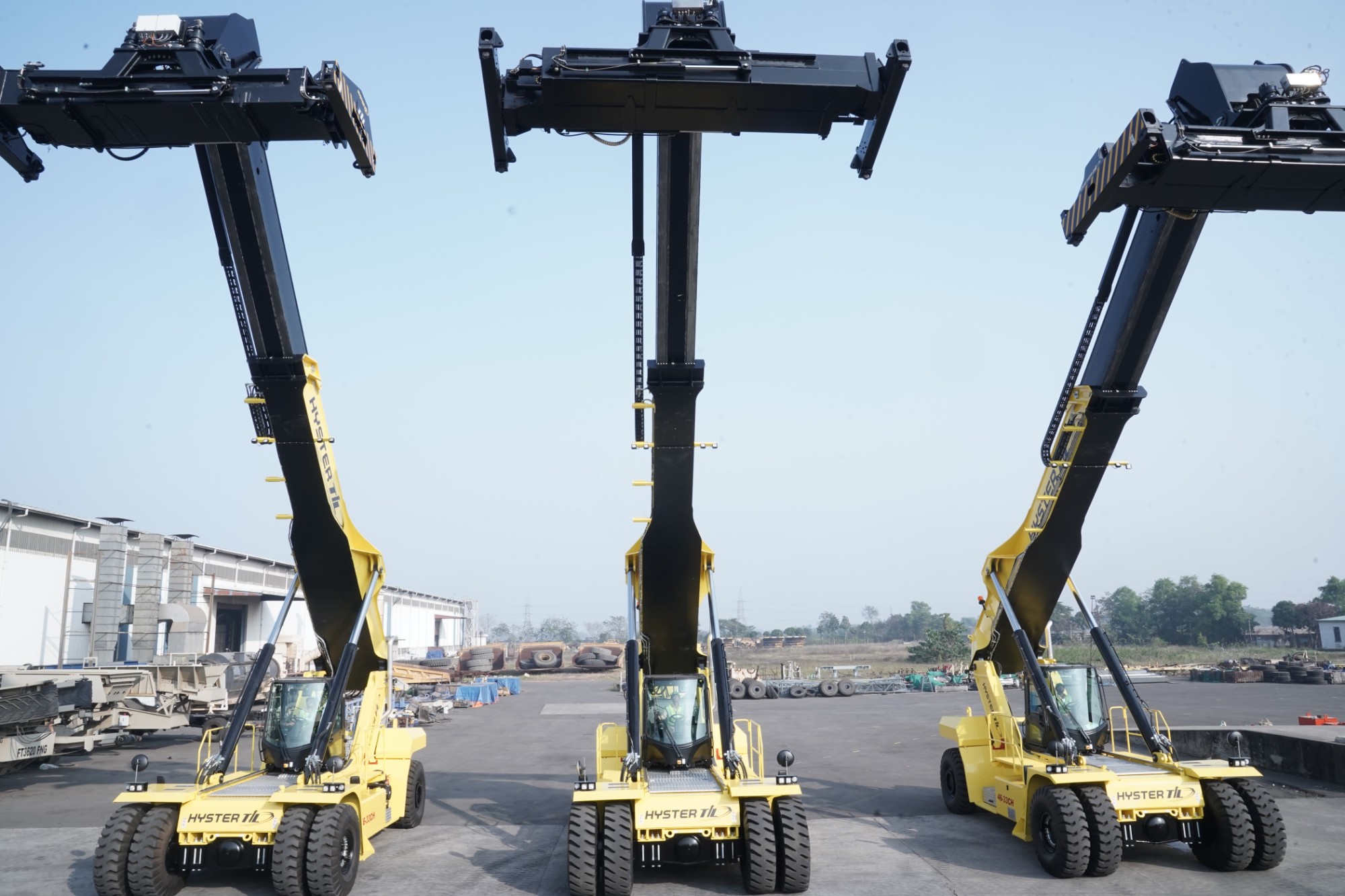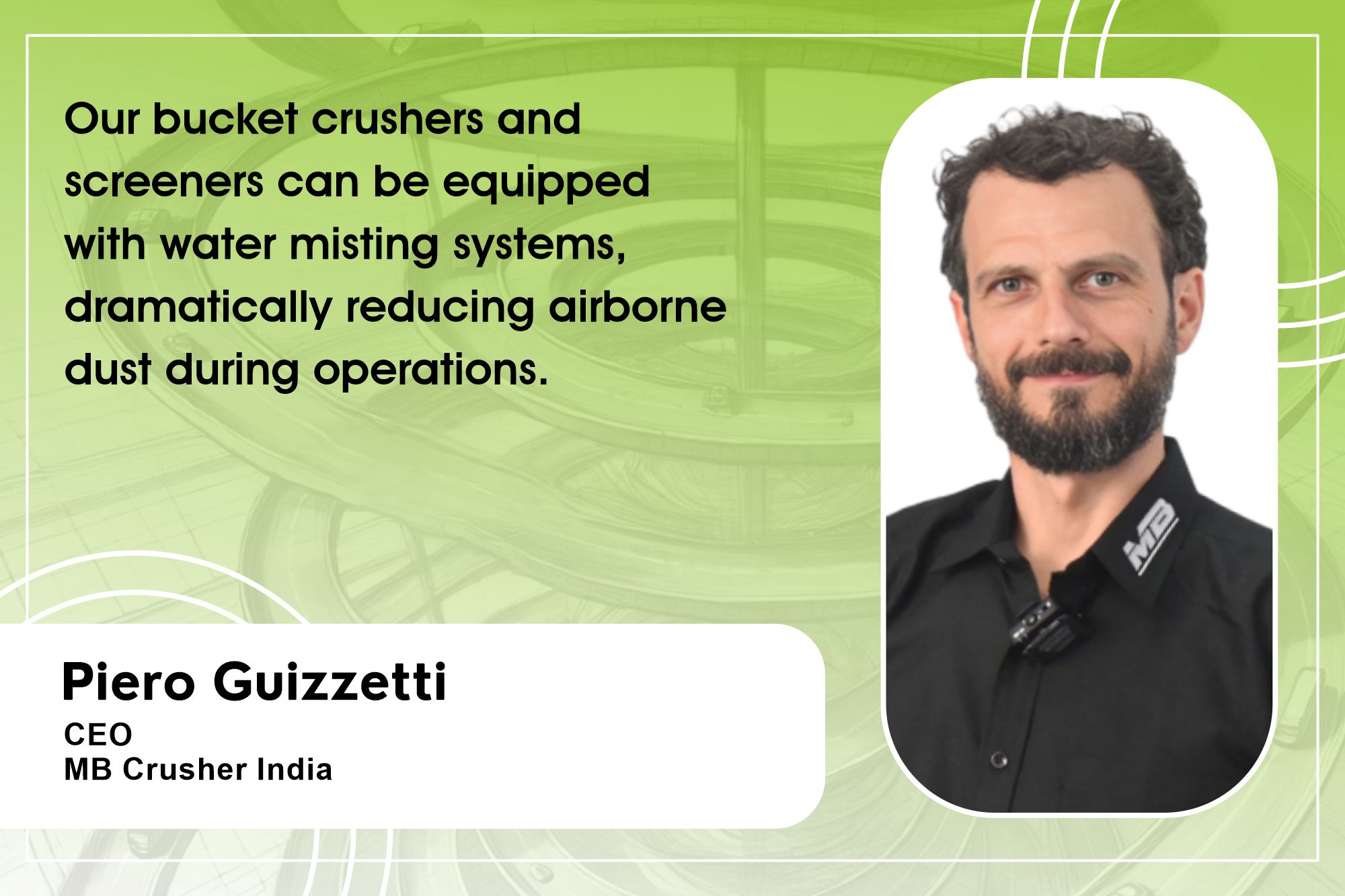Construction materials: Green is the new colour
By Edit Team | May 9, 2023 12:37 pm SHARE

Leaders from the building materials and construction chemicals industry collectively emphasise the importance of implementing sustainable practices in the construction industry and collaborating closely between contractors and manufacturers to enhance durability and sustainability in construction.
Reducing waste and increasing efficiency in the packaging process of construction materials
Efficient packaging of construction materials is essential to minimise waste and costs. Implementing sustainable packaging solutions can also reduce the environmental impact of the construction industry. Chirag Gundigara, Sales – Building Materials, at Haver & Boecker India, highlights the importance of packaging in the construction materials industry. He discusses how his company follows the packaging triangle to select appropriate dosing and bagging methods based on bulk density, moisture content, flow characteristics, and appearance. With complete information and the right machinery, they can reduce product loss and CO2 emissions and deliver clean bags from the plant to the end user. Gundigara emphasises that focusing on packaging for building and powdery products can prevent dust and powder spillage during the supply chain.
Role of biodegradable composite materials in sustainable construction materials
As sustainability becomes a top priority in the construction industry, using biodegradable composite materials is gaining popularity. These materials offer a range of benefits, from reducing waste to improving energy efficiency, making them an attractive option for sustainable construction. Avijit Chaubey, Head Technical at RDC Concrete Pvt. Ltd., states that while biodegradable materials cannot be used directly in construction, they can be used as an energy source instead of coal. These materials have high built-in energy, making them ideal for energy production. In addition, the ash that remains after burning certain biodegradable materials has been found to have excellent properties for making concrete. However, the main challenge is the availability of these materials. They are usually found in remote locations, making them difficult to access for most city development projects.
Environmental variations impacting the quality of construction materials
Environmental factors significantly impact the quality of construction materials and concrete structures used in the building industry. Temperature changes can lead to the expansion or contraction of construction materials, generating stress on concrete structures. “This phenomenon is especially prevalent in regions like Delhi NCR or the northern region of India, where temperature fluctuations can be substantial”, Chaubey explains. When these stresses are not adequately managed, they can result in cracks in the concrete, allowing water and contaminants to penetrate the structure.
Gundigara shares his experience regarding packing and mentions that his company has yet to encounter any critical packing challenges with the products they cater to in India. However, special precautions must be taken for materials such as carbon black that require packing at temperatures above 80- 85 degrees. Choosing the right type of bag is crucial. If the bags have adequate protection against water and moisture, they can withstand humidity and moisture.
Using recycled aggregates in construction projects under bis standards
Recycled aggregates have been approved for use in non-load bearing structures of up to m 15 grade under BIS standards IS 383 2016. However, using recycled aggregates in concrete presents several challenges. While washing off the concrete and recovering the aggregates is relatively easy, the availability and quantity of recycled concrete remain a major challenge. “Furthermore, the recycled aggregate may be weaker than the concrete it replaces, resulting in weaker material. Despite these challenges, the industry is still exploring ways to utilise recycled aggregates”, Chaubey highlights effectively. In Delhi, there is only one dedicated crusher for commercialising recycled aggregate.
Sustainable disposal of worn-out construction chemicals Ensuring the proper disposal of worn-out construction chemicals is critical in the building industry. Rajeev Gupta, Business Head for Construction Materials at ECMAS, understands the importance of this challenge. Handling and storing chemicals is crucial, with the right temperature required for chemicals like acrylic, epoxy, polyurethanes, and cementitious construction chemicals that need protection from water and moisture. When construction chemicals expire or become waste, their proper disposal becomes essential. As a responsible construction chemical manufacturer, authorised agencies are employed to ensure their proper disposal. This sustainable practice safeguards the environment and ensures the safety of people using the chemicals.
Managing disposal of construction material waste
As the construction industry grows rapidly, taking steps towards responsible waste disposal and increasing recycling efforts is crucial. “Some multinational companies have specialised agencies to handle the disposal and recycling of cement or construction chemical bags. Additionally, some powder product distributors collect their empty bags and return them to the manufacturer, who pays them per kilogram”, Gundigara adds. Such systems discourage the careless use of empty bags, and it’s essential to implement such changes.
Material pricing differences for construction projects and their impact on customers’ choices
Chaubey points out that using prescriptive specifications instead of performance specifications is a significant challenge in the construction industry. This affects material pricing differences for construction projects and impacts the quality of the final product. Chaubey suggests using performance specifications to provide sustainable materials that meet the required strength and durability, such as using newer construction chemicals to reduce cement usage, save money, and reduce carbon dioxide emissions. However, the industry must consider local availability and needs and avoid unnecessary or unsustainable materials. The use of monopolies and artificial price hikes also poses challenges. The industry needs to move towards sustainable practices and continuous improvement to ensure better customer-quality products.
Lastly, construction contractors and manufacturers of construction materials and chemicals are vital in ensuring the safety and longevity of construction projects. They collaborate closely with the construction industry, including ready-mix concrete manufacturers, contractors, and end clients, to provide solutions for making concrete, waterproofing projects, and protecting them from hazards. They also strive to enhance durability and sustainability in construction. Overall, their contribution is crucial in maintaining the quality and safety of construction projects.
As we can see, responsible waste disposal, sustainable material pricing, and collaboration between contractors and manufacturers are essential in the construction industry. By implementing these practices, we can ensure better quality and more sustainable construction projects for the future
Cookie Consent
We use cookies to personalize your experience. By continuing to visit this website you agree to our Terms & Conditions, Privacy Policy and Cookie Policy.



































-20240213125207.png)

























